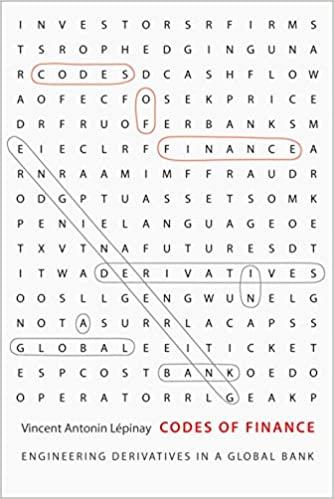Question
Royal Mail plc: Cost of Capital case Study Based on the following assumptions, my estimate of Royal Mails cost of capital is 3.828%. Exhibit 6
Royal Mail plc: Cost of Capital case Study
Based on the following assumptions, my estimate of Royal Mails cost of capital is 3.828%.
Exhibit 6
Royal Mail plc: Cost of Capital
Kyle Brookss Cost-of-Capital Analysis
Capital Structure Since Royal Mail is funded with both debt and equity, I used the weighted average cost of capital (WACC) method. Based on the March 2015 balance sheet, current debt as a proportion of total capital makes up 6%, noncurrent debt as a proportion of total capital makes up 12%, and equity accounts for 82%:
Capital Sources
Current debt Noncurrent debt Equity
Cost of Debt
Book Values (in millions of GBP)
290
559 3,846
6% of total capital 12% of total capital 82% of total capital
My estimate of Royal Mails cost of debt was 3.188%, which is the weighted average between the 0.9% rate Royal Mail is paying on its current debt and the 4.375% rate it is paying on its noncurrent debt. For the noncurrent debt rate I used the coupon rate from a recent bond. On July 29, 2014, Royal Mail issued a 10-year bond with an annual coupon of 4.375%. The bond was rated by S&P at BBB. S&P recently reaffirmed that rating, and the bond is currently trading at a price of 106.
I used a tax rate of 20%, which is the marginal tax rate for similar corporations in the United Kingdom, to estimate the after-tax cost of debt. According to our tax accountants, this is the tax rate that they expect the company will pay on future taxable income.
Cost of Equity
I estimated the cost of equity at 4.11% based on the prevailing dividend yield for Royal Mail. This was calculated by dividing last years dividend of 21 pence by the current share price of 511 pence. The dividend yield is a good estimate of the cost of equity because it indicates exactly what equity holders received over the past year on their investment.
I also looked at an estimate based on the capital-asset-pricing model (CAPM). My CAPM estimate of Royal Mails cost of equity was 5.321%. To get this number, I used a risk-free rate of 1.551%, the average yield on the 5-year government bond over the past 18 months. Because of the short period since Royal Mail has been privatized, there were few estimates of beta. But recently the equity research firm Chambers and Thompson published a beta estimate for Royal Mail of 0.65, so I used that. For my market risk premium I used 5.8%. This estimate comes from a rigorous academic survey of British investors that was published a few months ago. However, for my estimate of the cost of equity I selected the dividend yield estimate over the CAPM estimate because I felt it more prudent to be conservative.
Weighted Average
Based on these assumptions, my estimate of Royal Mails cost of capital was 3.828%. WACC=Kd(1t)D/(D+E)+Ke E/(D+E)
= 3.188% (1 20%) 18% + 4.11% 82%
This document is authorized for use only by Idrak Hasanzade in Building Shareholder Value (2017Fall) taught by Huajing Hu, Adelphi University from August 2017 to December 2017.
Page 10
Comparables Estimates
Exhibit 6 (continued)
To confirm my estimate I calculated the weighted average cost of capital for five comparable publicly traded companies. My estimates were:
National Grid: Severn Trent: Tesco: United Utilities: Vodafone:
3.853% 3.136% 5.475% 3.281% 5.660%
Since the comparable estimates are in the same general range as my 3.828% estimate for Royal Mail, I felt like my estimate was a reasonable representation of the true cost of capital for Royal Mail.
Do you agree with the cost of capital estimate detailed by Kyle brooks in Exhibit 6? Why or why not? If you do not agree, how would you adjust the estimate?
Step by Step Solution
There are 3 Steps involved in it
Step: 1

Get Instant Access to Expert-Tailored Solutions
See step-by-step solutions with expert insights and AI powered tools for academic success
Step: 2

Step: 3

Ace Your Homework with AI
Get the answers you need in no time with our AI-driven, step-by-step assistance
Get Started


